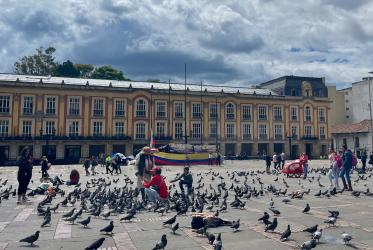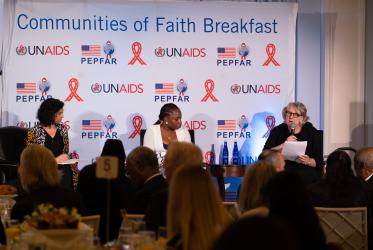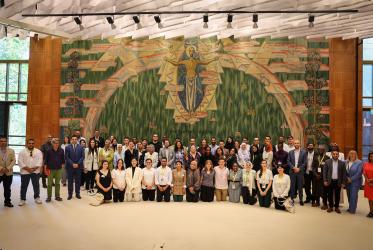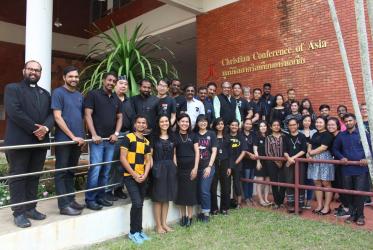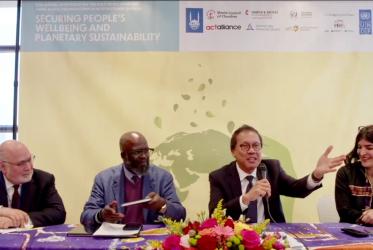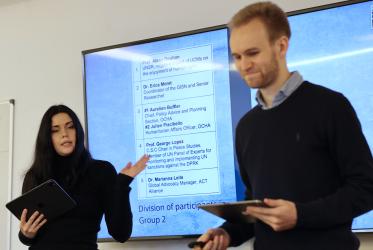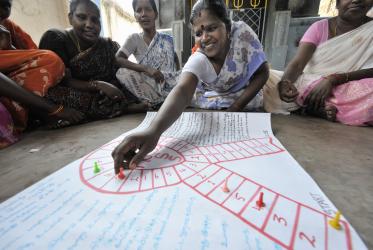Displaying 1 - 20 of 204
Voice of churches vital during UN women’s rights talks
28 March 2024
WCC Eco-School begins in Crete
15 November 2023
ACT Alliance general secretary: “equity is not negotiable”
26 September 2023
WCC Eco-School for Europe and North America region
11 - 18 November 2023
Orthodox Academy of Crete, Greece
HIV and AIDS Civil Society Networks and the Faith Sector
Lessons Learnt from Strategic Engagement in India, Dominican Republic, Indonesia, and Jamaica
31 January 2023
On World AIDS today, tackling inequalities is a matter of justice
02 December 2022


